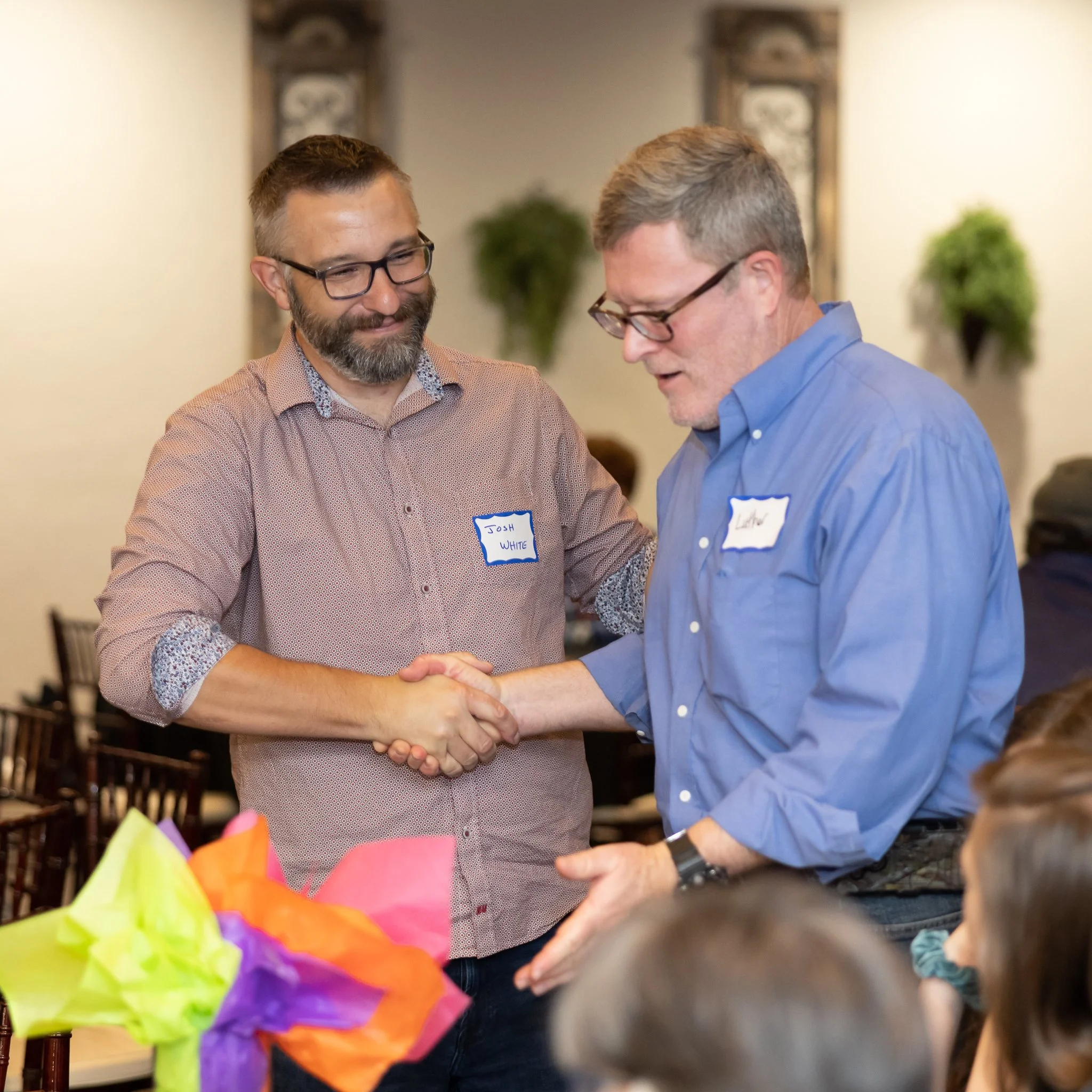
The number of people in the U.S. who consider themselves Christians continues to decline, yet there is a growing openness to spiritual conversation. Every follower of Jesus can make a difference in the lives of others, when we live by some intentional practices to bless those around us. P.O.U.R. is an acronym which invites us into these intentional practices.
P.O.U.R. is a reminder of our roots. John Wesley and the early Methodists set up their first ministry center in an abandoned Foundry in London. They served the poor and the vulnerable, they preached God’s word and they formed small groups for discipleship. A renewal movement spread as God poured into his people and they poured out their lives for the sake of the world. Originally used to cast armament for King Charles, the Foundry became a place where men and women of God were forged.
POUR invites us into these four intentional practices:
P = Pray
O = Offer
U = Understand
R = Respond

With Jesus as our model, everything begins and ends in prayer. We believe God will do greate things through us when we are diligent in praying for our neighbors. The P.O.U.R. Pledge invites us to commit to this.
P.O.U.R. Pledge
Pray:
I pledge to pray for my neighbors. My example is Jesus, who started His earthly mission with prayer (Luke 6:12–16). Prayer is both how I discover my mission and how I do the mission of Jesus.
Offer:
I pledge to offer invitations to relationship with those around me. To open my heart to new relationships, and my dinner table to eat with my neighbors. My example is Jesus, who consistently did life with the “sinners” (Matthew 9:9–13). Inviting others into my life, my home, or to a shared meal is how I move a relationship from an acquaintance to a friendship.
Understand:
I pledge to seek to know my neighbors and their needs. My example is Jesus, who loved others by asking questions and then listening to them (Luke 18:40–42). Listening is how I give dignity to others, and it is a gracious expression of love.
Respond:
I pledge to respond to the Holy Spirit as He leads me to share the Good News with my neighbors in word and deed. Serving others is a tangible way I can demonstrate the love of God to others and sharing my story gives others a clear understanding of how God’s love and the life of Jesus can change their lives. My example is Jesus, who did not come to be served but to serve others
(Matthew 20:28) and who shared the good news of His own story with others (John 3:1–17).

My Neighborhood Map
Print the block map and place it on your refrigerator to learn and remember your neighbor’s names.
Next Step Invitation
While it may seem a little strange to think of relationships in categories, the framework below can help us be intentional about the next steps we can take to P.O.U.R. blessings into others’ lives.
Learning names and some basic information is a great way to make acquaintances. But, what would it be like to make a commitment to throw at least one good block party every year, and then to sit back and see how God uses it on your block?
As you fill in the block map, consider taking the next step to plan a block party. Start small and focus on relationships. Anytime we get two or more households to spend time together, it’s a win. The key is to keep moving forward.

LIVE WORK STUDY PLAY Questions
Listening Questions are a way to be intentional about listening and noticing how God is at work in the lives of people around you. This practice can profoundly change your relationships with the people where you live, work, and play.
“Who in your neighborhood just had a baby?”
“Has anyone had any major life changes?”
“Do you know your coworkers’ names?”

Tell Your Story
What difference has following Jesus made in your life? How has knowing Him impacted how you walk through both the good and the hard times in life? Yes, when you tell your story include both the good and hard times. People will be more impacted when you’re honest about the challenges you continue to face even since choosing to follow Jesus. And don’t give the easy Sunday School answer. Talk about how your life is different and how God is growing you in certain areas, but make sure you’re sincere about how it’s a process and how you still often get it wrong. Saint Francis Xavier said it well: “Speak to them the great mercy of God…. Sometimes people are helped by your telling of your own lamentable past.”
Here are four tips to help you put your story on paper and memorize it:
-
Before you write out and share your story, ask God for the words to say and insight about how to say it so that He can use it. YOU BE YOU. Write out your three-part story the way you speak. Don’t try to sound like someone else. It’s your story and you just be you.
-
Don’t sugarcoat or overdramatize your story. Tell the good, the bad, and the ugly just the way that it happened. Your authenticity will connect with others.
-
Aim to keep your story three to five minutes long. At that length, it’s easily something you can share in a conversation without turning it into a monologue or a sermon.
-
Once you have written your story out, practice it out loud several times until you feel like you are comfortable and could do it from memory. Remember, you don’t have to write a book. Just follow those five tips and compose a simple three- to five-minute version of your story in those three parts. Now you are ready to share it with your neighbor when they are ready. Peter, Jesus’s close friend and follower, challenged us in this way: “Always be prepared to give an answer to everyone who asks you to give the reason for the hope that you have” (1 Peter 3:15 NIV). Your answer is your story.

Book Resources
-
Becoming a Contagious Christian by Bill Hybels and Mark Mittelberg
Just Walk Across the Room: Simple Steps Pointing People to Faith by Bill Hybels
Master Plan of Evangelism by Robert Coleman, Scott Grunden, et al.
The Gospel Comes with a House Key by Rosaria Butterfield
-
-












